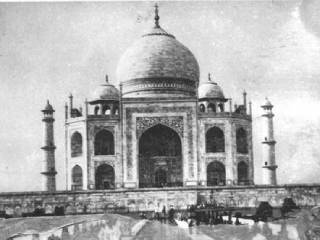The Avatar Way of Leadership
——————————————–
The book on leadership titled "The Avatar Way of Leadership –
Leadership for the 21st Century from Rama, Krishna and Draupadi"
being published by Rupa & Co will be out on 15th January. Here is a
short description and the reviews.
BOOK DESCRIPTION
`The Avatar Way of Leadership’ builds an Indian model of leadership
using the wisdom of Indian traditions that is supported by real
examples from the Indian context. The book decries the dependence on
American models of leadership and points out any intervention that
aims to influence the behavior of Indians must understand the
cultural ethos of India and use archetypal motifs that resonate
deeply among Indians. The most common and easily accessible
archetypal motifs are heroic figures and the Indian ethos abounds in
a multitude of heroic figures often termed as Avatars. Drawing on
Jungian psychology, the Avatar Way of Leadership develops a theory of
the leadership process and builds a model of heroic leadership based
on the life of the Avatars.
The book postulates a theory that describes leadership as a process comprising of three successive stages. These stages are: developing character; building relationships, and; devising good strategies. Good character builds attraction to a hero. Good relationships turn the attraction into long term loyalty. Good strategies in turn lead to victory and help sustain the attraction and loyalty.
Three avatars of Indian mythology representing different leadership
categories have been chosen for this model: Rama, the formal king who faced a crucial test to prove his capacity to lead; Krishna, who rose from humble origins to build a powerful kingdom, and; Draupadi, who battled injustice and at the same time unified her disparate Pandava family and enabled them conquer their obstacles. This model of leadership shows how each avatar was able to influence people around them to fulfill their goals and the lessons each offers for us today.
Each avatar denotes a different leadership context. Thus the model from Hindu mythology provides guidance on the different types of leadership that are applicable in different situations. Each
leadership model is explained with references to real Indian leaders who have unconsciously used the same methods to achieve success. Thus, the model has a direct relevance to modern realities.
REVIEWS
‘The Avatar Way of Leadership is a stroke of genius: understanding the heroes and heroines of the Mahabharata and the Ramayana as archetypes of Indian personality patterns, Harsh Verma outlines the life histories of famous and successful modern Indians – leaders of industry and politics, inspiring figures from the world of cultural and charitable organizations, Hindus, Muslims and Christians – in the
terms and the colors of the great Characters of the Epics.
The ideal figures of Krishna, Rama and Draupadi and others provide the templates for a much truer characterization and analysis of Indian humanity than the superimposition of the artificial archetypes of Western depth psychology, so widely used in academia. At the same time Harsh Verma’s approach should prove to be of
immense educational importance: The epic models of Indian humanity have been preserved in the Indian psyche for thousands of years and they should not fail to inspire the present and future generations of Indians. The book is a joy to read and to recommend!’
—Dr Klaus K. Klostermaier, Fellow of the Royal Society of Canada, University Distinguished Professor Emeritus, University of Manitoba, and author of A Survey of Hinduism
‘Moving easily between the universe of the legends and the corporate triumphs and struggles of the likes of Ratan Tata and Dhirubhai Ambani, Harsh Verma guides us through examples that give real flesh
and blood to legends that would otherwise appear distant and removed. Quite apart from business leaders, the book also looks at the rich talents of contemporary political leaders like Atal Vihari
Vajpayee. As a result, the book would appear to cover not only the elements of pragmatic leadership, but charismatic leadership as well. The examination of the role of women like Draupadi also raises
some highly charged and relevant issues of leadership and its support and sustaining mechanisms.
Finally, the most valuable achievement of this book is to vindicate the oft overlooked qualities and values that the great, and successful, leaders of our epics seem to share – humility, strength
of conviction, steadfast pursuit of moral goals, concern for the greater good of society, and occasional flexibility tempered by steely firmness. True, there are countless occasions of ethical
dilemmas and even moral ambiguities. But these are also valid reflections of the world we live in. These values and ambiguities are not explicit concomitants of non-Indian thoughts on leadership.
In bringing them within the bounds of mainstream studies of leadership this book performs a unique function.’
–Dr Ashis Gupta, Professor (Retired), Haskayne School of Business,
The University of Calgary, Canada & Adjunct Professor,
University of Maryland University College, Maryland, USA
‘In The Avatar Way of Leadership, Mr. Verma takes the reader back to the roots of the Indian culture, to the ideals and aspirations that energize it. Telling the stories of Vedic heroes-describing the
characters, relationships and leadership strategies of Rama, Krishna and Draupadi-he makes a contribution to the leadership literature that is uniquely Indian. And, by illustrating the lessons that he draws out of those stories with tales of modern Indian leaders who exemplify these ideals, he provides a road map for us to see how the
characteristics and behaviors of these archetypal heroes can be enacted effectively in the modern world.
As an American leadership scholar whose home-of-the-heart is India, I am delighted to see this depiction of a uniquely Indian perspective on societal and business leadership. At the same time, its lessons
reveal moral principles that are the foundation of all great leadership world-wide. I highly recommend the book to anyone who is interested in thinking about leadership in his or her own societal
context or in learning more about the moral values that lie at the heart of the Indian culture.’
–Ruth H. Axelrod, Assistant Professorial Lecturer, Department of
Organizational Sciences and Communication, Columbian College of Arts
and Sciences, George Washington University, USA

 Mizoram: EC accepts Christians’ demand to defer counting on Sunday, but what if Hindus had made a similar demand?
Mizoram: EC accepts Christians’ demand to defer counting on Sunday, but what if Hindus had made a similar demand? Sign Petition : Immediately repeal the draconian and unconstitutional ‘The Waqf Act, 1995’
Sign Petition : Immediately repeal the draconian and unconstitutional ‘The Waqf Act, 1995’ Shriram : Sri Lanka’s saviour
Shriram : Sri Lanka’s saviour Why it is so cool to malign Hindu gods and goddesses, but it may not be that easy now
Why it is so cool to malign Hindu gods and goddesses, but it may not be that easy now Shocking Truth of Taj Mahal exposed by Late Pujya P. N. Oak
Shocking Truth of Taj Mahal exposed by Late Pujya P. N. Oak How are Hindus treated in states where they are in a minority?
How are Hindus treated in states where they are in a minority?